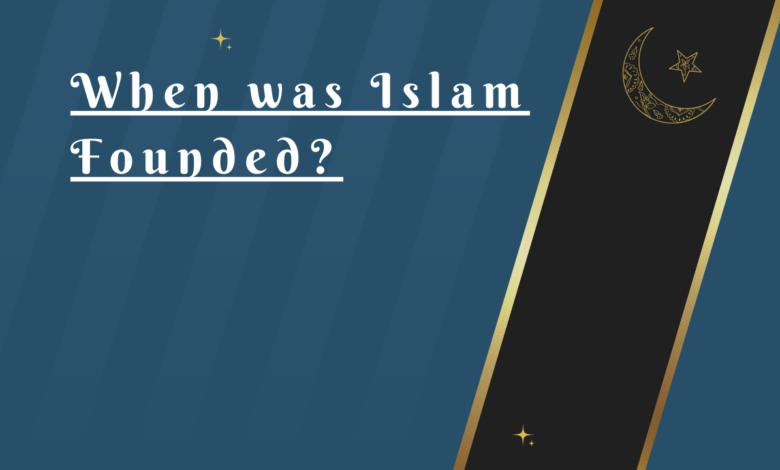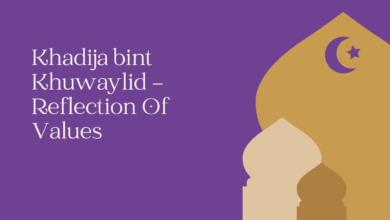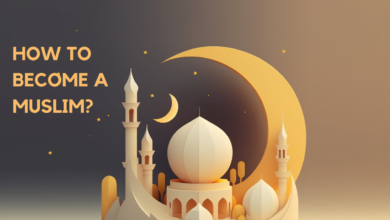
When was Islam Founded?
Islam is traditionally believed to have been founded in the 7th century CE. It began with the prophethood of Muhammad, who received the Quranic revelations in Mecca.

Introduction
The origins of Islam, one of the world’s major religions, have been a subject of scholarly debate and historical exploration for centuries. Islam’s founding is rooted in a complex tapestry of religious, social, and political developments, making it essential to delve into its history to better understand when and how this faith emerged. In this article, we will explore the birth of Islam, shedding light on the key events and figures that played pivotal roles in its establishment.
Pre-Islamic Arabia
To comprehend the emergence of Islam, we must first consider the pre-Islamic Arabian Peninsula. The Arabian Peninsula was home to various tribes and communities, each with their own polytheistic beliefs and practices. Mecca, a bustling trade center, held particular importance in the region as it housed the Kaaba, a shrine believed to be constructed by the Prophet Abraham, but over time, it had become a site of pagan worship.
Also check.
- What is Shirk Islam?
- Who is Prophet Musa
- What is Laylat al-Qadr?
- Why did Islam Spread So Quickly?
- What is Jihad in Islam?
The Birth of the Prophet Muhammad
The advent of Islam is closely associated with the life of the Prophet Muhammad, who was born in Mecca in 570 CE. Raised as an orphan, he grew up to be a respected merchant known for his honesty and integrity. At the age of 40, Muhammad received a divine revelation in the form of the Quran through the Angel Gabriel. This marked the beginning of his prophethood and the emergence of Islam.
Muhammad’s Message
The central message of Islam, as conveyed by the Prophet Muhammad, was the worship of the one true God, Allah, and the rejection of polytheism. Muhammad’s teachings emphasized monotheism, compassion, social justice, and the moral and ethical behavior of individuals. He called upon his followers to uphold these principles and shun the idolatrous practices of the time.
The Spread of Islam
Over the next two decades, Muhammad’s message gained followers in Mecca, but it also faced significant opposition from the local elites who felt threatened by the new faith. In 622 CE, Muhammad and his followers, known as the Sahaba, migrated to Yathrib, later renamed Medina, where they found a more receptive audience.
In Medina, the Islamic community grew, and the Prophet Muhammad became a political as well as a religious leader. The years that followed witnessed a series of battles, known as the “wars of apostasy,” in which Muhammad and his followers defended and expanded the nascent Islamic state.
The Death of the Prophet Muhammad
In 632 CE, the Prophet Muhammad passed away in Medina. His death marked a critical juncture in Islamic history, leading to questions of succession and the emergence of various factions within the Muslim community.
Caliphate and Expansion
After Muhammad’s death, his close companion and father-in-law, Abu Bakr, became the first caliph, or successor. During his caliphate, a series of military campaigns, known as the Ridda Wars, were launched to bring various tribes and communities under the banner of Islam. These conquests laid the foundation for the rapid expansion of the Islamic state across the Arabian Peninsula and beyond.
Conclusion
The birth of Islam can be traced back to the 7th century CE, with the revelation of the Quran to the Prophet Muhammad in Mecca. It emerged in a region characterized by diverse pagan beliefs and tribal rivalries, and it sought to unify the Arabian Peninsula under the banner of monotheism. Over time, Islam’s message spread and evolved, transforming not only the Arabian Peninsula but also influencing the course of world history.
The story of Islam’s birth is intertwined with the life and teachings of the Prophet Muhammad, who guided his followers in their pursuit of a more just and ethical society. Today, Islam is one of the world’s major religions, with over a billion followers worldwide, and its history continues to be a subject of scholarly interest and spiritual inspiration.

FAQs
When was Islam founded?
Islam is traditionally believed to have been founded in the 7th century CE. It began with the prophethood of Muhammad, who received the Quranic revelations in Mecca.
Who founded Islam?
Islam was founded by the Prophet Muhammad. He is considered the final prophet in Islam and received divine revelations that form the basis of the religion.
Where did Islam originate?
Islam originated in the Arabian Peninsula, primarily in the city of Mecca, which is now located in present-day Saudi Arabia. This is where the Prophet Muhammad received the initial revelations.
What is the significance of Mecca in the founding of Islam?
Mecca holds immense significance in Islamic history as it is where the Kaaba, the most sacred site in Islam, is located. It’s also where the Prophet Muhammad was born and received his first revelations.
What is the Quran, and how does it relate to the founding of Islam?
The Quran is the holy book of Islam, believed to be the literal word of God (Allah) as revealed to the Prophet Muhammad. It is the foundational text of the religion and played a pivotal role in the founding of Islam.
How did the message of Islam spread beyond Mecca?
The message of Islam spread beyond Mecca through the efforts of the Prophet Muhammad and his followers, who migrated to Medina. Over time, it was further disseminated through military conquests, trade, and peaceful means, eventually reaching regions far beyond the Arabian Peninsula.
What are the key principles or beliefs that characterize the founding of Islam?
The key principles of Islam include monotheism (the belief in one God, Allah), the acceptance of Muhammad as the final prophet, the importance of prayer, charity, fasting during Ramadan, and adherence to the moral and ethical teachings of the Quran.
What role did the caliphate play in the expansion of Islam after the Prophet Muhammad’s death?
After the death of the Prophet Muhammad, a series of caliphs (successors) led the Muslim community. They played a crucial role in the military expansion of the Islamic state, which led to the spread of Islam across different regions.
What is the historical significance of the hijra (migration) to Medina in Islamic history?
The hijra, or migration, to Medina is a pivotal event in Islamic history. It marks the beginning of the Islamic calendar and is significant because it provided a safe haven for the early Muslim community and allowed Islam to flourish beyond Mecca.




